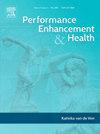增强型游戏是否值得辩护?它们是个好主意吗?
IF 3.7
Q2 HOSPITALITY, LEISURE, SPORT & TOURISM
引用次数: 0
摘要
1998年费斯蒂纳事件暴露了职业自行车运动中普遍存在的兴奋剂问题,此后,以国际奥委会(International Olympic Committee)为首的体育组织建立了一个全球反兴奋剂计划。这一举措旨在打击兴奋剂,兴奋剂被视为对体育诚信和经济可行性的威胁。另一种方法——使提高成绩的药物合法化——被认为不切实际,不值得认真考虑。它的支持者,如果不是完全被忽视,被批评为不负责任的关注者,他们会把体育变成一场奇观。今天,在世界反兴奋剂机构(World Anti-Doping Agency)成立25年后,一群富有的投资者开始努力将这个曾经被忽视的想法变为现实,他们组织了一场允许使用兴奋剂的比赛。本文批判性地考察了提议的“增强运动会”,评估允许使用兴奋剂的体育赛事是否在道德上和实践上是合理的。它探讨了支持和反对这种模式的论点,解决了与技术和生物医学增强、公平、运动员健康和监管可行性相关的问题。目的是评估这样的比赛能否在更广泛的体育道德和制度框架内得到捍卫,并最终确定它是否有意义。本文章由计算机程序翻译,如有差异,请以英文原文为准。
Can the enhanced games be defended, and are they a good idea?
In the wake of the 1998 Festina affair, which exposed widespread doping in professional cycling, sports organizations, led by the International Olympic Committee, established a global anti-doping program. This initiative aimed to combat doping, which was seen as a threat to both the integrity and economic viability of sports. The alternative approach—legalizing performance-enhancing drugs—was dismissed as unrealistic and unworthy of serious consideration. Its advocates, if not outright ignored, were criticized as irresponsible attention-seekers who would turn sports into a spectacle.
Today, a quarter of a century after the founding of the World Anti-Doping Agency, a group of wealthy investors has begun efforts to turn this once-dismissed idea into reality by organizing a competition where drug use is permitted. This paper critically examines the proposed Enhanced Games, evaluating whether a sporting event that allows performance-enhancing drugs can be ethically and practically justified. It explores arguments both in favor of and against this model, addressing issues related to technological and biomedical enhancement, fairness, athlete health, and regulatory feasibility. The objective is to assess whether such a competition can be defended within the broader ethical and institutional framework of sports and, ultimately, to determine if it makes sense at all.
求助全文
通过发布文献求助,成功后即可免费获取论文全文。
去求助
来源期刊

Performance enhancement and health
Social Sciences-Health (social science)
CiteScore
4.70
自引率
0.00%
发文量
27
审稿时长
57 days
 求助内容:
求助内容: 应助结果提醒方式:
应助结果提醒方式:


